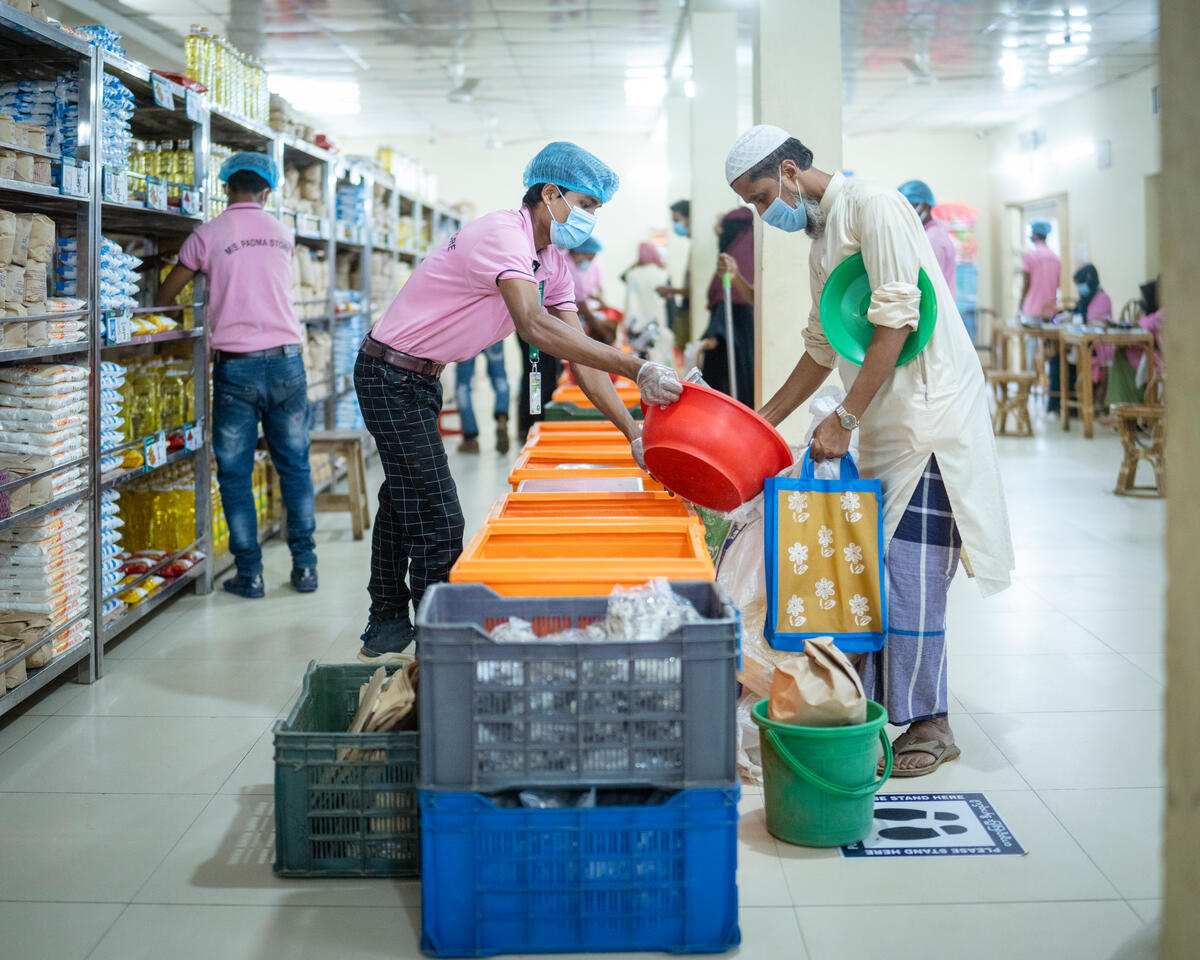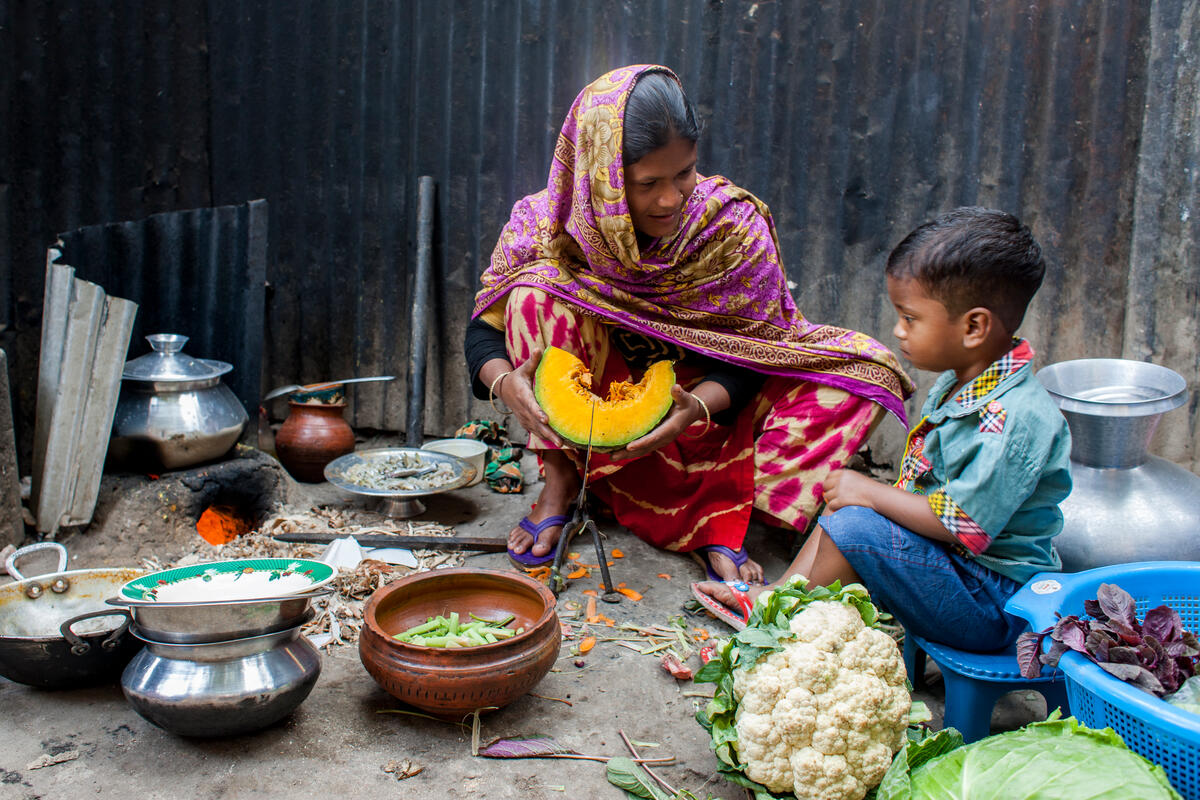In some contexts where WFP operates, food and services are available locally, but people lack the financial resources to purchase them. Social safety nets are thus shifting to providing humanitarian assistance in the form of cash transfers, allowing individuals to buy what they most need in their local markets. By putting purchasing power in people's hands, cash transfers can help strengthen local markets and economies, contributing to long-term resilience.
The challenge is that cash-based social assistance programmes may not fully achieve their primary objectives because of the flexibility of cash and the often multiple competing needs of recipients. For example, cash-based programmes that aim to enhance food security will need to ensure people spend their entitlements on nutritious food than other items. Social and behavioural change communication may not be sufficient on its own to achieve this goal.

WFP's cash transfers include assistance distributed as physical bank notes, e-money, mobile money, through debit cards or value vouchers which are redeemable at locally-contracted shops. In the photo: WFP's e-voucher outlet in Cox's Bazar, Bangladesh. WFP/Sayed Asif Mahmud.






